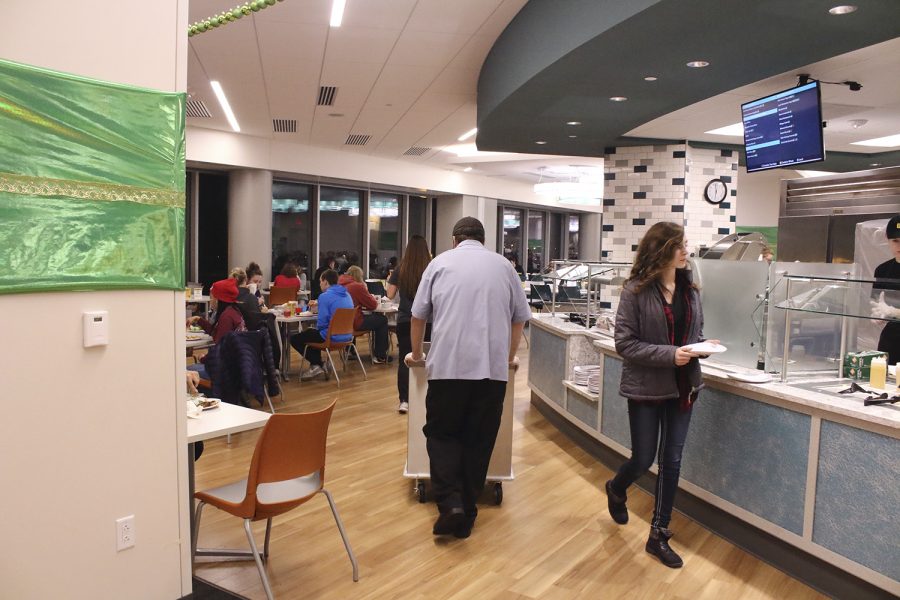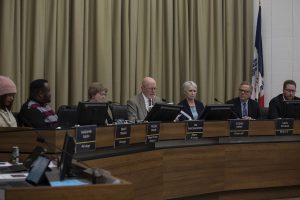UIH&D creates new program to help students in their second year experience
In a continued effort to encourage second year students to live on campus, University Housing & Dining is launching the Second Year Experience pilot program in fall 2019.
Catlett Dining Hall as seen on Tuesday, Nov. 28, 2017.
February 19, 2019
As the next academic year approaches, University of Iowa Housing & Dining will implement a program to help second-year students living on campus: the Second Year Experience pilot program.
The Second Year Experience, located in Catlett Hall, will allow students to create a portfolio for their future careers. The students in the program will build their portfolios through career-development experience, major and career choices, academic success, and interactions with faculty, said UI Assistant Vice President Von Stange, the senior director of University Housing & Dining.
“The data tell us that second-year students who live on campus have higher GPAs than their peers who live off campus,” Stange said. “We’re also seeing a higher level of retention from second to third year for those second-year students who live on campus versus those who live off campus.”
There are 111 spots available in the program, and 115 students have applied for the program, he said.
RELATED: Mayflower operates at 60% capacity to give returners on-campus living space
Students in the program are not required to complete portfolios, Stange said. However, if they do, they will receive a reduction in their room rates, he said.
Housing & Dining will offer financial incentives, as well as need-based scholarships to students in the program, because Catlett is more expensive to live in, Stange said. Housing & Dining wanted all students to have the opportunity to live in the program regardless of their financial situation, he said.
One reason students choose to move off-campus is because it’s cheaper than living on campus, said sophomore Jocelyn Roof, a UI student government senator and member of the task force for the program. Through the financial incentives, it gives more students the opportunity to live on campus and shows that Housing & Dining acknowledges the expense of living in a residence hall, she said.
As part of the task force for the program, Roof helped conduct focus groups with first-year students, second-year students living on campus, second-year students living off campus, and RAs of returning students, she said. The focus groups allowed the task force to get student perspectives on what they would want in their housing experience, Roof said.
“I think the student perspective is vital, in any committee on campus, because, ultimately, we go to a university, and everything we’re doing should be geared toward students and what the students want,” she said. “It’s a program for students, so we should make sure that it’s working for students.”
Even though a lot of focus is put into programs for first-year students, second-year students still need support as they figure out what they want to do in the future, said Danielle Martinez, the associate director of academic support and retention in the University College.
Students who interact with faculty tend to do better in their classes, and there is a better retention rate of these students, Martinez said. Through speaking to faculty in the program, students can think about what they’re doing in the classroom and apply it to their lives, she said.
The portfolio aspect of the program allows students to analyze their strengths and weaknesses, assess how they’ve been doing with classwork, and reflect on their experiences in college so far, Martinez said.
“Second-year students, I think, tend to be a little of forgotten students, and, knowing that, a program like this could really benefit them in creating their network of support,” Martinez said.






